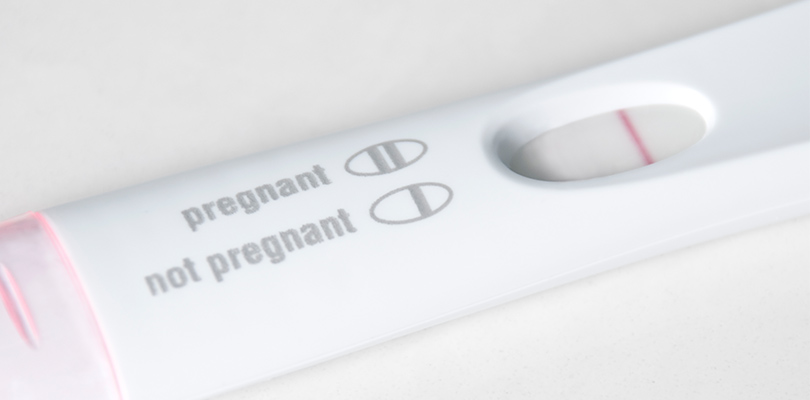What You Need to Know About Nasal Decongestants
Unfortunately, allergies can be at their absolute worse when the seasons change. Itchy eyes, stuffy nose, and consistent sneezing are among the most common symptoms of those that suffer from seasonal allergies. It can be an incredibly rough time of year.
Allergies are the leading cause of nasal congestion. Not only is a stuffy nose incredibly uncomfortable, but it can also make it difficult to breathe, sleep, or participate in your favorite activities.
Thankfully, there is a way to find nasal congestion relief. Using a nasal decongestant could be what you need to feel like yourself again. There are a variety of options to choose from, and many people find the perfect solution for their particular needs.
How Do Nasal Decongestants Work?
Allergies make the lining of the nasal cavity swell which causes the uncomfortable congestion that you feel. Nasal decongestants shrink the swollen blood vessels and provide people with some relief. However, nasal decongestants can’t relieve sneezing or itching which almost always accompanying allergies.
Some people prefer to take a multi-symptom medication that includes a nasal decongestant and other ingredients that tackle some of the other symptoms. Keep in mind that most multi-symptom medications also can include more side effects.
Types of Nasal Decongestants
Nasal Decongestants can come in many forms including pills, liquids, nose drops, and nasal spray. People can choose the option that is most suitable for them. For example, some people have difficulty swallowing pills; some perhaps one of the other options is better for them.
There are numerous over-the-counter options including:
- Vicks
- Sudafed
- Afrin
- Dristan
- Claritin-D
- Zyrtec
- Benadryl
However, some people suffer from such severe nasal congestion that they must rely on prescription medication. Those medications include:
- Desloratadine
- Triamcinolone
- Guaifenesin
- Fexofenadine
These types of medications require a prescription simply because they are a bit stronger than the over-the-counter options. Plus, some of them have more side effects that should be closely monitored in order to adjust dosage in the future.
When Should You Use a Nasal Decongestant?
You should use nasal decongestant when your nose is stopped up. It is best to use with allergy-related congestion. Keep in mind, a nasal decongestant only remedies the congestion and will not work for other symptoms of allergies such as sneezing, itching eyes, or coughing. Make sure to follow the instructions for use so as not to over medicate yourself.
You should consult your doctor if you have any of the following conditions:
- Thyroid problems
- Glaucoma
- High blood pressure
- Heart conditions
- Enlarged prostate
- Diabetes
The above conditions may be impacted by nasal decongestants and should be monitored by your doctor. Remember, do not take prescription medications unless they are prescribed to you.
Some thyroid problems develop slowly and take time to disappear after you start treatment, and signs include weight loss, appetite changes and more.
Nasal Decongestant Side Effects
While nasal decongestants work to relieve the symptoms of a stuffed-up nose, they aren’t without side effects. The side effects range in severity, but it’s always a good idea to be on the lookout for potential impacts of medication.
Common side effects of nasal decongestants include headaches and difficulty sleeping.
Infrequent side effects include:
- Difficult or painful urination
- Agitation
- Nervousness
- Shaking
- Nauseous
- Loss of appetite
- Elevated heart rate
- Dizziness
- Drowsiness
Rare side effects:
- Hallucination
- High blood pressure
- Throwing up
- Seizures
- Difficulty breathing
It’s important to pay close attention to any side effects that you may feel and consult a doctor right away with any of your concerns. Some medications are more suitable than others, and it may take some time to identify which option is right for you.
Other Considerations
Nasal decongestants do react with other products. For example, intranasal nicotine. It can prolong the time for the product to peak and take effect in the body. Additionally, pregnant and breastfeeding women should consult with a doctor before use since some medications have not been thoroughly evaluated for these patients.
Nasal decongestants shouldn’t be taken long-term, and your doctor will advise you on how long you should take the medication given the circumstances of your health.
What to Do When Nasal Decongestant Isn't Helping
It is not recommended to take a nasal decongestant for more than three days in a row. Continuous use can have an adverse effect and make you stuffier than you were before.
If you still have symptoms after a few days, consults with your doctor about a change in dosage or type of medication you are using. In some cases, nasal congestion may be linked to other health concerns that should be evaluated by your doctor.
Overview
Nasal congestion can be downright uncomfortable. Suffering from a stuffed up nasal cavity can make breathing difficult and take away from your ability to participate in the things that you love doing the most.
Fortunately, there are several treatment options available. To learn more about your options, reach out to your medical provider for more information.







